RIBA headquarters, Nos 66–68 Portland Place
By the Survey of London, on 29 July 2016
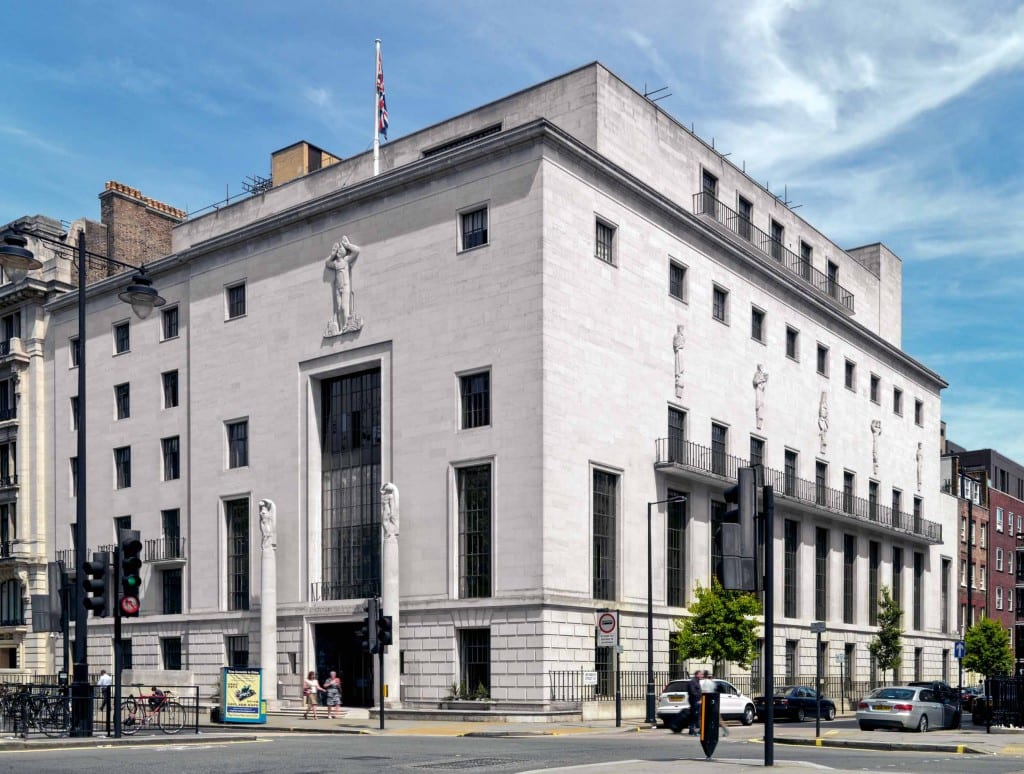
RIBA Headquarters, view from the south-west (© Historic England, Chris Redgrave).
Ian Nairn once noted the irony that the RIBA’s headquarters should be located in Portland Place: the one street in London he felt had been ‘most stupidly and selfishly and blindly ruined by twentieth-century R.I.B.A. members’. But George Grey Wornum’s building, with its sophisticated union of clean lines and classical proportions, is not one of those brutal transgressors.
At the entrance, a pair of giant cast-bronze entrance doors, decorated with a series of charming relief sculptures, tell the story of London’s river and its buildings, modelled by James Woodford, to drawings prepared by J. D. M. Harvey.
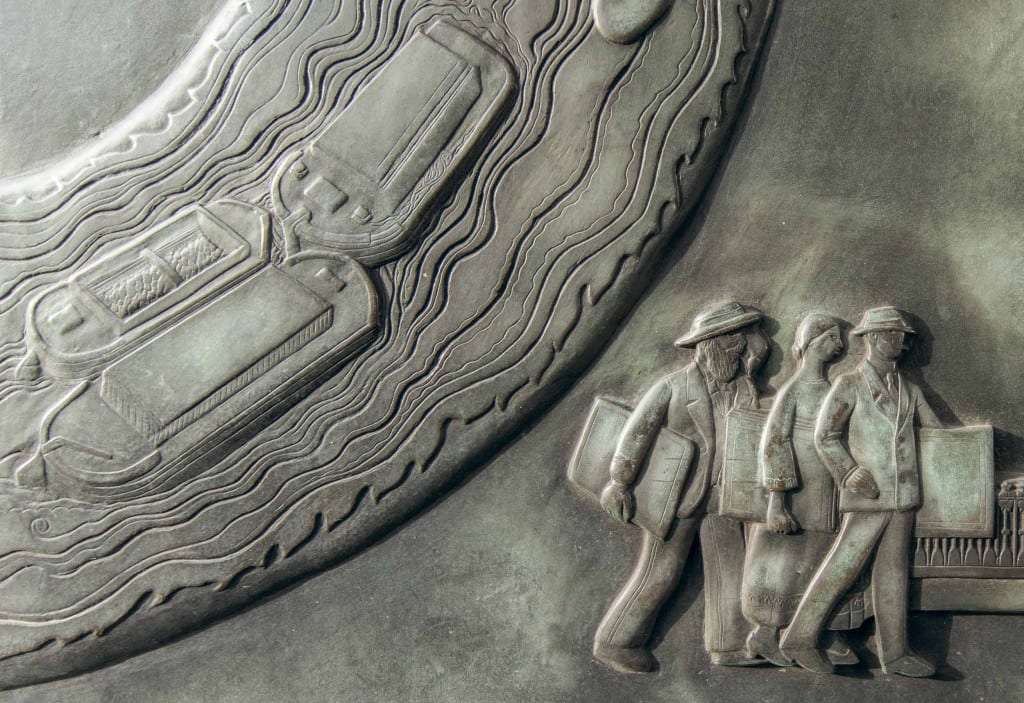
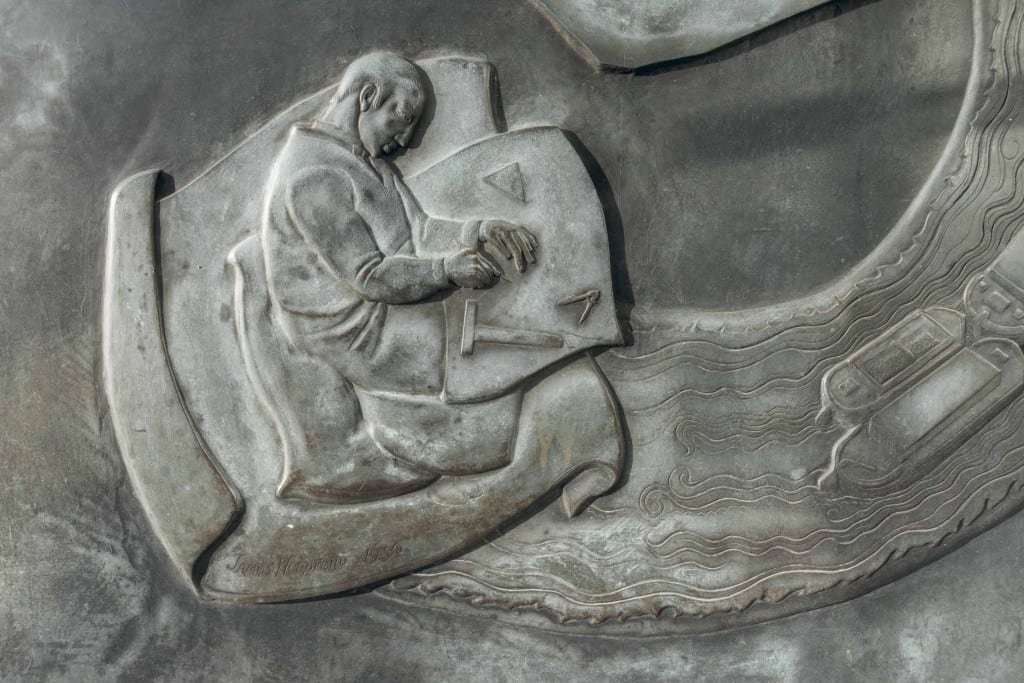
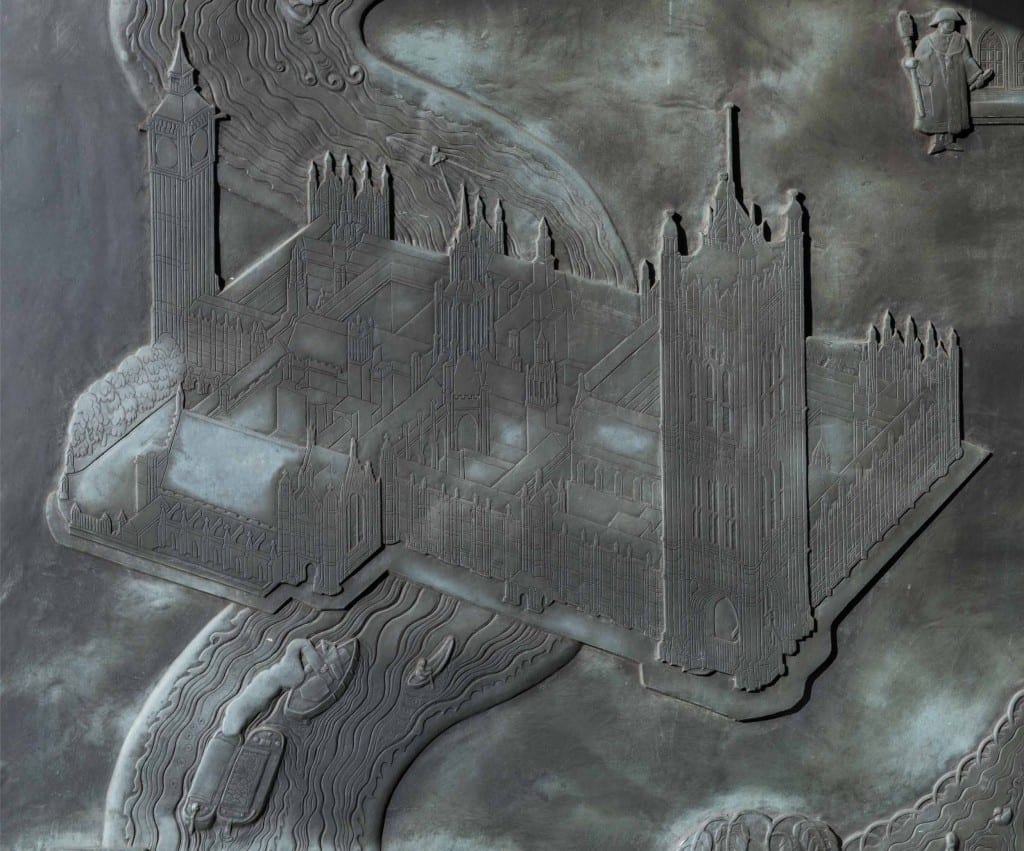

Inside, the entrance hall has a honey-coloured sheen from its yellow terrazzo floor slabs and polished limestone walls, incised with the names of RIBA Presidents and Gold Medallists. But it is the staircase that is Wornum’s tour de force. It is a dramatic space, dominated and held together by four giant fluted columns of green Ashburton marble, star-shaped in plan and without bases or capitals, that rise nearly 30ft to the coffered glass ceiling.
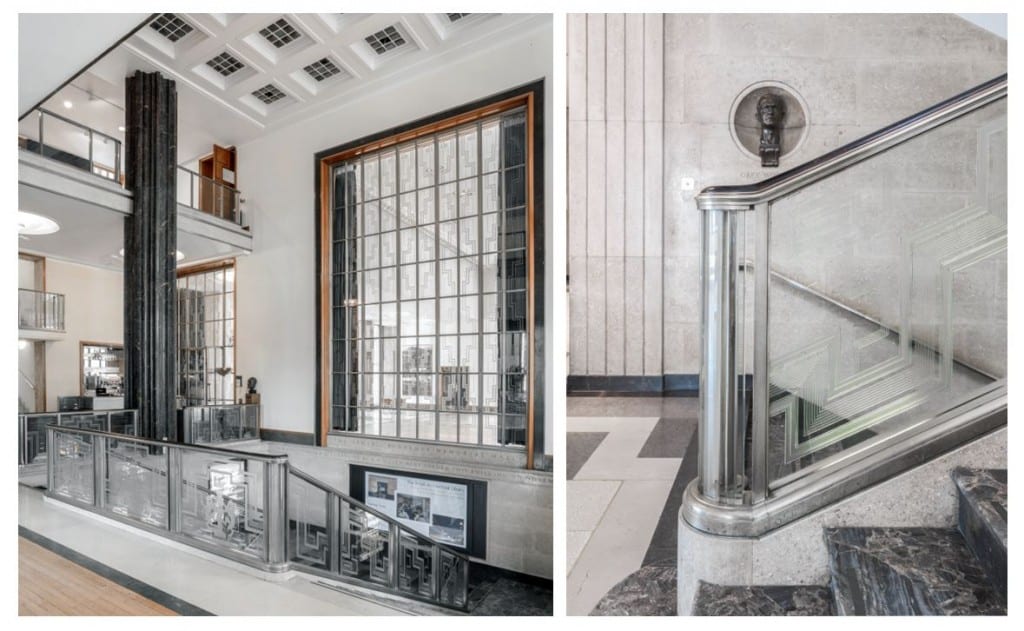
On the first floor is the principal reception room: the Henry Florence Memorial Hall. Decoration is everywhere, with a patterned floor and splayed limestone piers carved with scenes of architecture through the ages (designed by Edward Bainbridge Copnall), and several fine wall carvings (also by Copnall), including one showing Wornum and Maurice Webb deep in conversation under the watchful eye of Ragnar Östberg. On the ceiling are sculptures by Woodford depicting the various building trades. Also in this room is a pine screen carved with twenty reliefs (by Denis Dunlop) representing culture and industry in India, Canada, South Africa, Australia and New Zealand.

Henry Florence Memorial Hall, designed by Wornum with his visit to Stockholm obviously very fresh in his mind (© Historic England, Chris Redgrave).
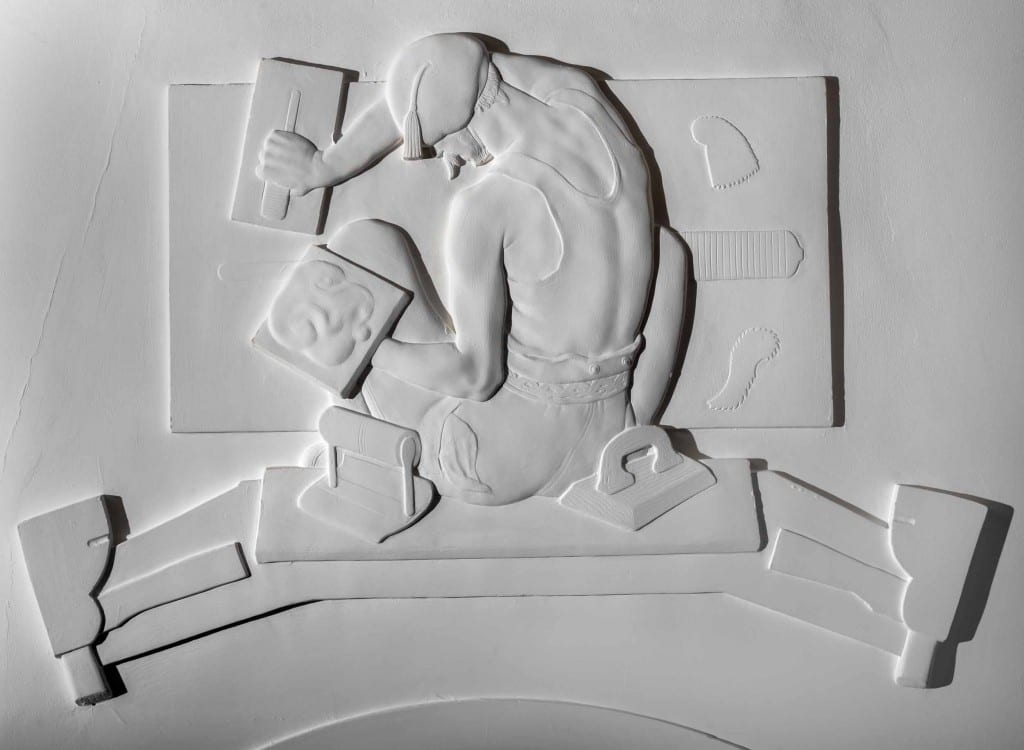
Henry Florence Memorial Hall, ceiling panel by Woodford (© Historic England, Chris Redgrave).
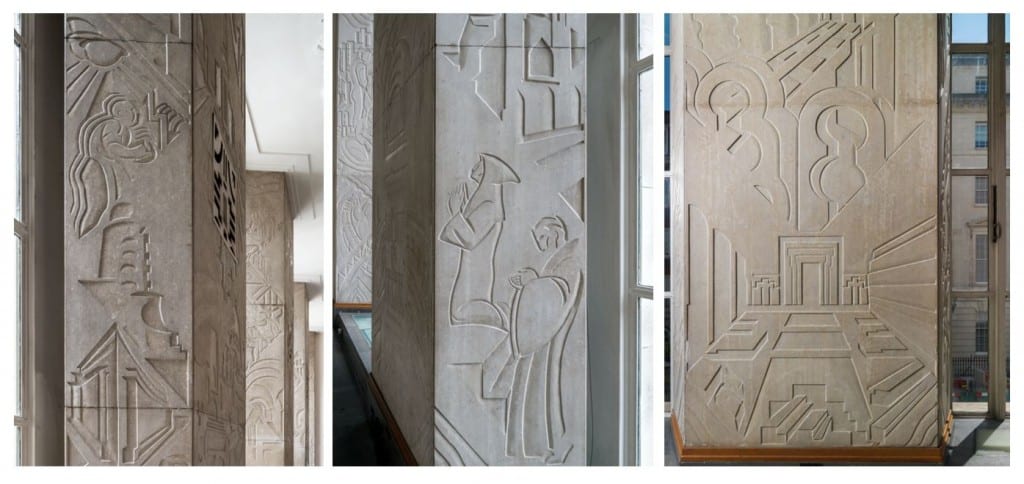
Henry Florence Memorial Hall, splayed limestone piers carved with scenes of architecture through the ages (© Historic England, Chris Redgrave).
The British Architectural Library on the third floor was designed by Wornum in consultation with the RIBA’s then librarian Bobby Carter, with Moderne curved ends to its bookcases, and originally with a colour scheme by his wife Miriam (recently restored) of steel bookshelves enamelled in blue and yellow, and a brown cork floor.

British Architectural Library (© Historic England, Chris Redgrave).
With grateful thanks to Eloise Sinclair who put this blog piece together based on the text in the draft chapter from the South-East Marylebone volumes, which can be found here.
 Close
Close


